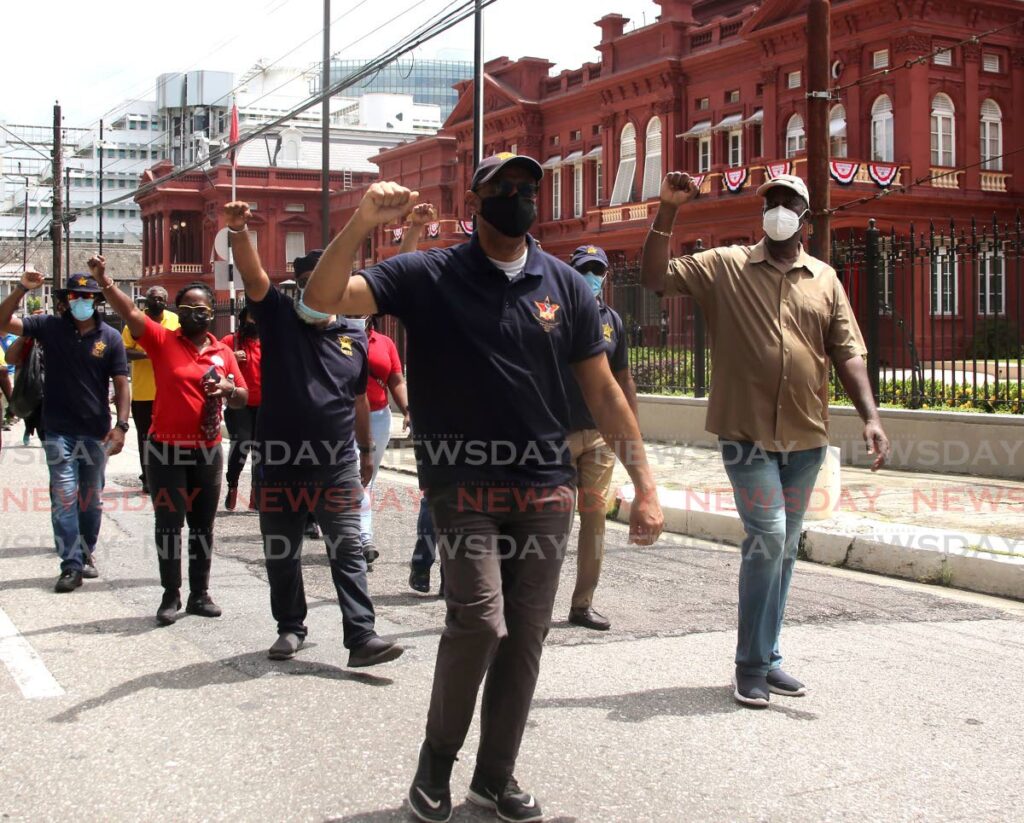Labour’s last gasp

The relationship between the Government and the labour movement has hit such a stalemate it is safe to say there are serious implications for how matters affecting workers will be dealt with in the future.
Trade unions have come out against government plans to declare public-sector workplaces safe zones and to furlough unvaccinated workers. The unions see such plans as tantamount to introducing mandatory vaccination and have threatened to seek legal recourse. Government remains unfazed.
What is at stake for both sides is their relevance to each other.
Trade unions are nursing several recent wounds, many of which have been self-inflicted.
In recent years, there has been a history of animosity over collective bargaining agreements. The Petrotrin issue appeared to catch unions flat-footed. Instead of bolstering its position, the subsequent withdrawal of labour from a tripartite Cabinet-level mechanism has only hastened the sense of its estrangement from government planning.
The pandemic has removed several avenues of mass mobilisation for unions. But even before 2020 there was a sense of traditional marches becoming increasingly perceived as a tactic belonging to another era.
In now taking up the cause of fighting moves to encourage covid19 vaccination (the unions say they do not oppose vaccination; they just wish to represent those who don’t feel like taking the jab and to uphold personal choice over personal responsibility), labour is grasping at what is likely to be one of the last hallmark industrial-relations issues for some time to come.
It's a risky strategy. The country is fed up with the covid19 situation and few will have sympathy with anything that stands in the way of efforts at making progress. Some government workers have already rushed to get vaccinated in the wake of the Government’s announcement of its plans.
Equally, the Government stands to lose from appearing to ride roughshod over civil-society groups. The large numbers of unvaccinated state workers before this month suggests unions may find a ready audience for their tactics, even if the general public remains indifferent.
Reconciliation now seems unlikely, given the unproductive intervention of Attorney General Faris Al-Rawi, but in the long run, both sides may well have to compromise.
The Government needs to get labour to the table, if only because of the necessity to advance covid19 measures and in anticipation of future waves or global events that have the capacity to rock the workplace. It’s a tough ask, given the positions being adopted by unions, some of which even oppose safe zones.
The role of the Ministry of Labour should be clarified.
Long is the history of labour leaders joining governments but eventually parting ways or else being rejected by the labour movement itself. Such appointees are in theory important links. However, the tension between upholding Cabinet responsibility and addressing the demands of unions inevitably fosters a sense of paralysis, not symbiosis.
The current impasse is the surest sign yet that there is a need for a reset in the approach. That reset must be underlined by reason and science as a precondition for moving forward.

Comments
"Labour’s last gasp"